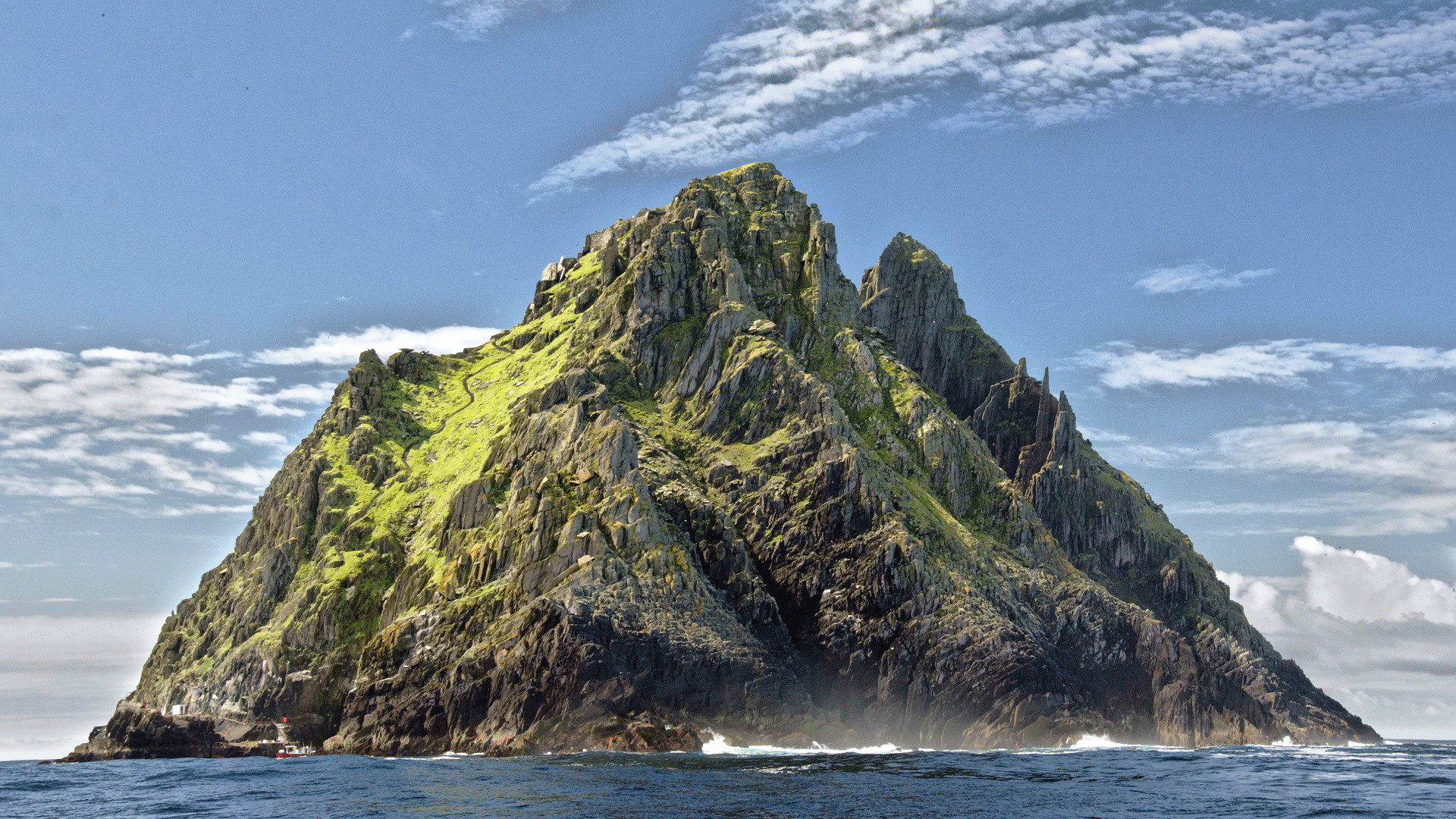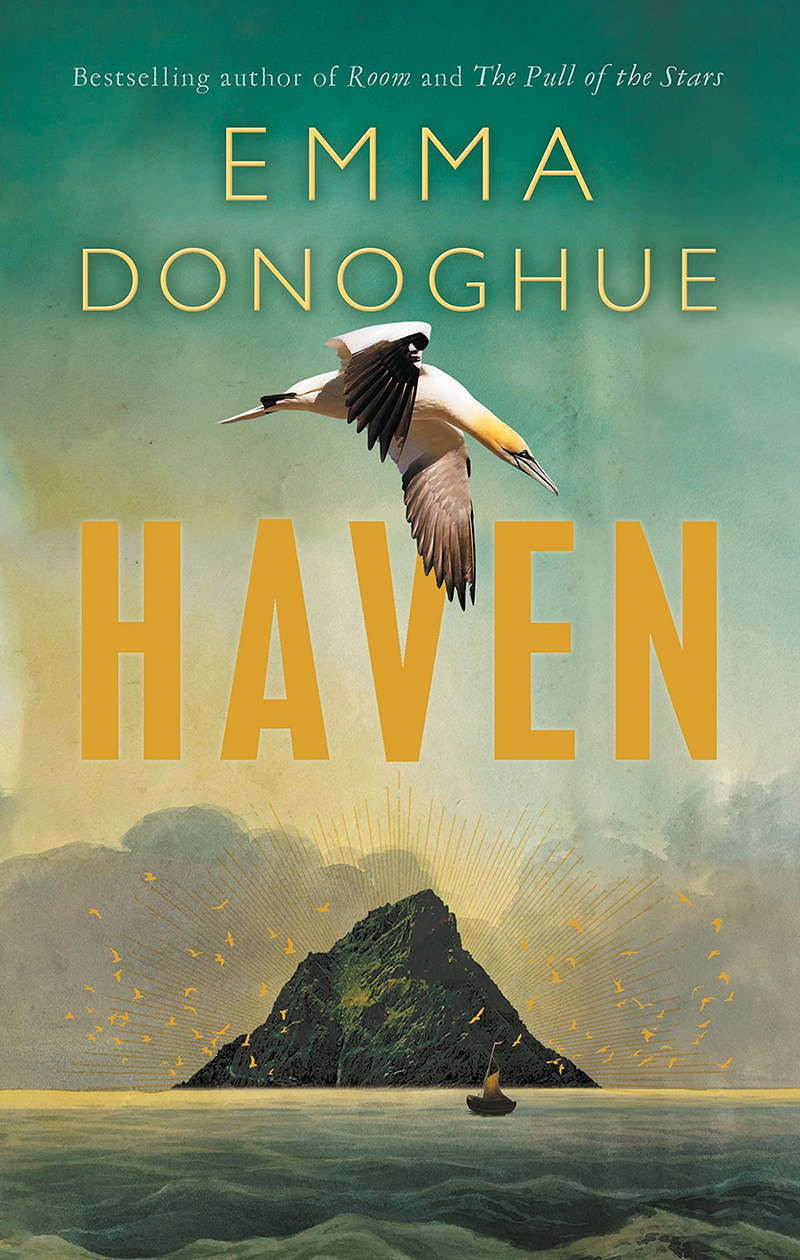In Room, Emma Donoghue’s Josef Fritzl-inspired novel about a mother and child trapped in a kidnapper’s lair, the author suggested that, with enough love, it was possible to create an almost-haven in the depths of hell. In her latest book, Haven, she shows how, with enough zealotry, a spiritual sanctuary can be transformed into a cruel parody of the divine.
Set in seventh-century Ireland, Haven follows the attempts of Artt, a revered scholar and priest, to set up a religious community far away from the temptations of the world. Dismayed by the laxity he finds at a monastery he is visiting, and seizing on a dream as prophecy, he sets forth to find an unsullied spot with two of its monks: Cormac, a late convert who lost his wife and children to the plague, and Trian, a young daydreamer handed to the community at the age of 13.
Soon they come upon Skellig Michael – that twin-peaked shard on the edge of the Atlantic. The island is unpromising terrain. There is no fresh water source and no fertile soil in which to grow vegetables. A lacklustre rowan is its only tree. But providence has blown them there; and there, Artt decrees, they must stay and build a chapel. Not only that, they must do so without leaving its shores even to trade. They will survive on what God provides. At first, the three thrive on pitting themselves against the odds. The lack of any fallback position brings out skills they never knew they had. But before long, Artt’s puritanical bent starts fraying the bonds of brotherhood and fealty.
It’s a gripping yarn: a Christian Castaway 2000; a Lord God Almighty of the Flies. Slowly, skilfully Donoghue builds a sense of brooding intensity; a claustrophobia born, not, as in Room, of a lack of physical space – the men are constantly out in the open air – but of their inability to escape the endless diktats of their faith. Hell is the bell summoning them to prayer. Hell is other people.
Emma Donoghue’s descriptions of the landscape and the great auks, cormorants and puffins that brighten up its nooks and crannies are lovely. But what elevates her book above a theological thriller is the way she links Artt’s arrogance with the contemporary plundering of the Earth’s resources. He believes the island – though hundreds of millions of years old – was created specifically for the monks to inhabit, and the birds put there to service their requirements: as food, fuel, providers of quill pens. It doesn’t occur to him Skellig Michael was doing an excellent job of glorifying God without any human intervention. The resonances with climate change are obvious. With or without the false cover of religion, man’s belief in his right to take whatever he wants from the environment has enduring consequences.
Haven by Emma Donoghue is out now (Picador, £16.99). You can buy it from The Big Issue shop on Bookshop.org, which helps to support The Big Issue and independent bookshops.










